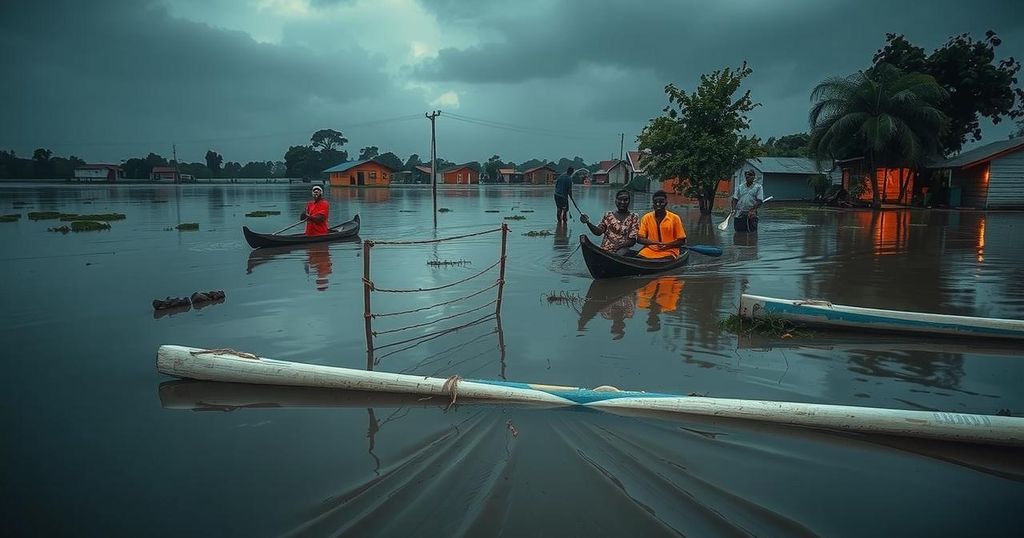Severe Flooding Aggravates Health Crisis in South Sudan
Severe flooding in South Sudan has displaced over 226,000 people and affected more than 890,000 individuals, severely compromising healthcare services as nearly 58 health facilities are submerged. The exacerbation of health issues, including cholera and malaria, amidst a population already struggling with the impacts of climate change underlines the urgency for coordinated humanitarian response and investment in resilient health systems.
As South Sudan grapples with unprecedented flooding, the humanitarian crisis is intensifying, affecting over 890,000 individuals across 42 of the nation’s 78 counties. Since the floods struck, more than 226,000 South Sudanese have been displaced, facing severe disruptions to their homes and livelihoods as essential infrastructure, including 58 health facilities and numerous roads, remain submerged. The United Nations has indicated that while flooding is common during the rainy season from April to November, the current situation is exacerbated by climate change, overwhelming the resilience of local communities and leading to the permanent displacement of several populations. The World Health Organization (WHO) has raised alarm about worsening health conditions, as the region is already home to nearly 800,000 refugees and returnees escaping ongoing conflicts in neighboring Sudan. Additionally, the emergence of two suspected cholera cases in Renk County highlights the urgent need for healthcare access amidst rising malaria cases, which have surpassed 120,000 with at least 31 fatalities reported by the end of September. WHO representatives have emphasized the critical vulnerability of the population, stating their commitment to collaborating with the Ministry of Health to ensure the continuity of essential health services and to address the escalating health and humanitarian needs. In response to this crisis, WHO has dispatched approximately 88 metric tonnes of emergency health kits to crucial areas, which include critical medical supplies designed to assist over 870,000 individuals affected by the floods. Furthermore, the organization has distributed nearly 1,300 malaria kits this year and pre-positioned cholera diagnostic resources to enhance response capabilities. WHO is coordinating with various partners to monitor health implications resulting from the floods and is advocating for sustainable investments aimed at strengthening health systems to better cope with climate-related adversities.
The context behind the severe floods in South Sudan stems from its vulnerability to climatic changes which have resulted in more drastic flooding incidents during the annual rainy seasons. The instability in neighboring Sudan has contributed to a significant influx of refugees into South Sudan, further straining the already fragile health systems and humanitarian situation. As agricultural and economic activities suffer due to the flooding, health threats such as cholera and malaria are exacerbated, highlighting the urgent need for robust emergency health responses.
The ongoing flooding crisis in South Sudan represents an alarming intersection of humanitarian and health emergency, highlighting the pressing need for coordinated response efforts. With a significant number of the population displaced and essential healthcare severely compromised, the international community’s collaborative measures are pivotal for delivering timely assistance and fostering resilience against future climatic shocks.
Original Source: sudantribune.com




Post Comment